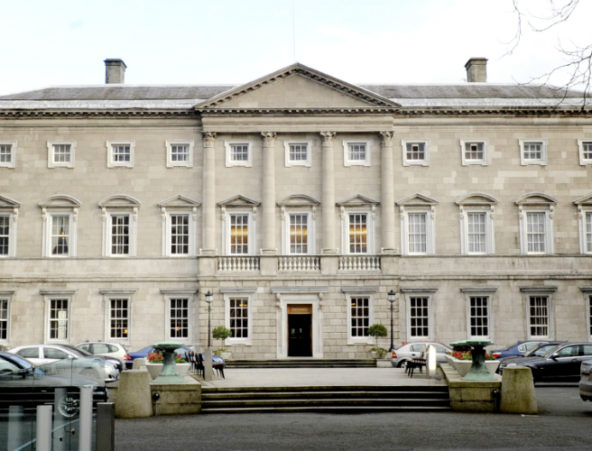By David Mullins
The first Bill in our Tale claims to seek long overdue and radical reform of a centuries old system that some say is permeated with archaic and oppressive practices. This same system has denied countless people fair access while favoring the wealthy or least those with more means than most and despite such access being a universal human right. For almost the entirety of its history this system has been presided over by a male-dominated hierarchy who dress in black robes and who are almost impossible to remove in the event of wrongdoing. They rarely if ever suffer professional sanction. Its procedures have been so forbidding that even women in fear of their lives and who have been the victims of horrendous violence have chosen not to engage with it.
They have spoken instead of being re-victimised and traumatised by the interrogatory nature of its practices. Entry into the systems ranks has been the preserve of the ‘elites’. The stratification of class is seldom more noticeable. It has its own form of the Confessional Seal with prohibitions on public disclosures that some public representatives have said actively endangers children and the freedom of the press. Others have said these practices have shielded the incompetent and kept the public ignorant of catastrophic errors of judgment.
Those seeking justice within this system have frequently travelled overseas for the vindication of their rights. We have even had a referendum to reform it that passed with 65.16% of the vote *.
Millions have been spent on reforming it; yet people still wait years to access its services. The Bill to further reform it has been championed by a lone Minister, in the teeth of fears and uncertainties from his Cabinet colleagues who say, reform yes, but this is going too far. The system and the institution our Bill seeks to reform has also been the subject of criticism and critique by international bodies and Independent Commissions with claims that it has been rife with political influence where it should have been impartial.
It has been stalled and filibustered, held up and held back, with claims that ‘insiders’ are terrified of the changes it desires to bring about. These ‘insiders’ caricature the attempt to apply greater ‘democracy’ to the systems selection procedures as a typically plebian mistake. They do not mean to be ‘paternalistic or patronising’ but the effect is apparently the same.
I am of course referring to the Judicial Appointments Commission Bill 2017.
Will we see the people in their thousands throng the court yard of Dublin Castle when the Judicial Bill is signed in to law? For that matter, where are all the murals calling on Oireachtas members to “Vote Yes for judicial appointments that support public confidence in the administration of justice in our courts.” It doesn’t have a good ring to it I grand you, although tearing down the privileges of the elite is a popular political issue these days. Perhaps the problem is that the people who might properly publicise and popularise the attempts to reform the system (namely journalists and politicians) are too close to our legal elites for comfort?
Or is it the case that, despite its profound importance, it’s not judged worthy of the time or the wasting of tirelessly cultivated and fashionable social capital? Is the reform of an institution that remains a foundational pillar of our social order really that banal that it cannot even generate the flimsiest of street campaigns by our big NGOs that concern themselves with ‘human rights’?
By the way, the other Bill is the Abortion Bill and no opposition to it is permitted, or properly publicized.
(* The referendum is question took place in 2013 and was aimed at setting up a Court of Appeal. Its passage by two-to-one shows there is a public appetite for judicial reform).
















